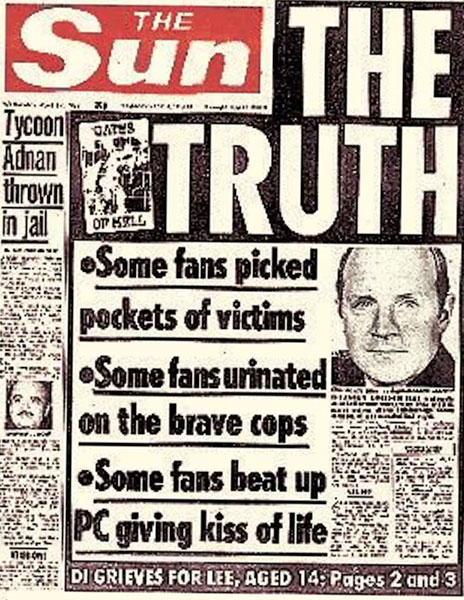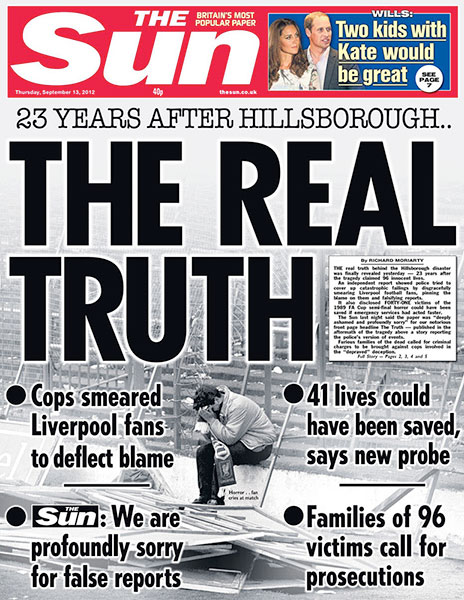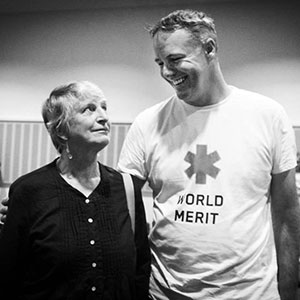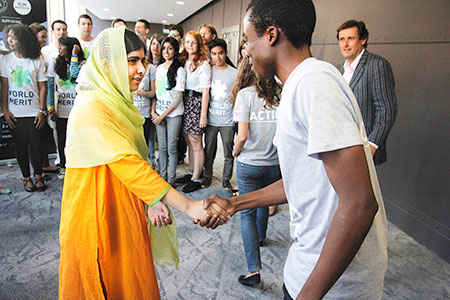Surviving the Hillsborough tragedy at the FA Cup in England as a boy of 16, Chris Arnold founded World Merit to develop and empower young global leaders
—
April 15th 1989 ended the lives of 96 people at a stadium in the UK; it also irreversibly influenced the lives of thousands, including me. I was at the semifinal of the FA Cup, a huge football (soccer) match in England. A series of errors by officials led to a tragedy inside the stadium, leaving so many people dead in the enclosure I was in. We were crushed because fans had been let into the stadium through the ”exit” gates and subsequently allowed into a tunnel leading to the already full terrace where I stood. It was a day that simply became known as ”Hillsborough.“ Ninety-six people between the ages of 10 and 67 died; brothers and sisters, friends and fathers. This is the day I first understood that life is short.
Like all those involved, my flashbacks and memories are many. For me the hardest memory, the one that often comes back to shake me, is that of a man who pleaded with me to give him space before he fell unconscious, pressed into my side, sliding slowly down beneath the mass of merging bodies.
We were trapped in a cage built to keep people from gaining access to a soccer pitch. As the crushing crowd moved me to just three or four bodies back from the fence at the front, a place where I thought everyone would be dead, I am still struck with shock and anger at what I saw.
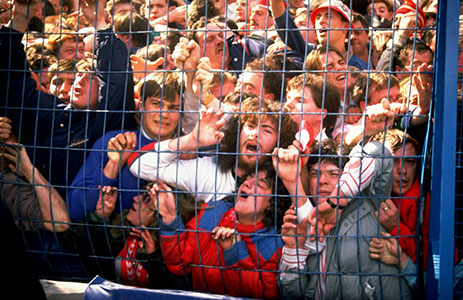
Looking past the heads, past the pain, and past the vomit in the hair of people pressed against that front fence, I could see photographers snapping us, clicking away as we fought for breath and survival. Whatever they might say about their professional need to do their job, there was an essential need and room for them to help; rather, they took photos of us dying. There is no doubt that those people on the other side of a fence could have tried to save us, could have tried to get the emergency gates open, tried to pull on the fence to tear it down, but providing content for the following days newspapers was their focus. They simply had to choose — drop the camera and save a life or turn their backs on those in need for a “shot.” This is the day I understood that priorities aren’t as obvious as they should be — people and the planet, and then profit, should be the order.
The stewards did not immediately respond by opening the inadequate gates in the front fence. Instead they meekly waited for an order and followed bureaucracy while people’s breathing had stopped. There was a loss of basic common sense. Police were reluctant to help any of those who, with sheer survival instinct, had scrambled to the top of the molten crowd; when the first wave of people crawled on their knees across shoulders and heads to escape over the spiked fence, they were pushed back in.
I learnt about survival instinct and self-preservation that day.
A father, who had lost his son comforted me, a 16-year-old stranger, and I learnt about true kindness. My dad thought he had lost me in that crush — his face and shock showed me what losing a child might mean to someone, something I only fully appreciate years later now that I have my own sons.
Hillsborough also taught me that people, even senior officials, will lie to deflect blame and responsibility.
I learned that when trapped in a lie, these same people will allow it to escalate and perpetuate to such an extent that thousands of lives are destroyed, a city’s good name is smeared, and that justice is something that bereaved families are forced to fight for over a quarter of a century. The lie was told by Chief Superintendent David Duckenfield, the senior police officer in charge at the stadium: he said that fans had forced the exit gates open when it had actually been a police directive. That lie snowballed and suddenly, three days later, on the front page of Britain’s biggest tabloid newspaper, the fans were suddenly being deemed a drunken mob. Under the headline, “THE TRUTH,” we were accused of pickpocketing the dead (our brothers and sisters), of urinating on the police, of beating up the police while they tried to resuscitate people (our brothers and sisters). I was there and this was a terrible lie that upset me even more than the events of the day itself. This was an attack.
It took over 20 years for the British government to order the release of the documents from the disaster. Although I knew the truth, it was still a devastating shock to find that hundreds of police and witness statements had been materially altered to remove any criticisms of officials. The coverup has led to the longest public inquiry in British legal history, something that is still ongoing and difficult to bear.
So is this day my inspiration? In many ways yes — with the accelerated learning I accrued on that day, I was left with an insight that would stay with me as I work to make a positive impact.
The vigour, resolve and dignity that the families of the deceased have shown while fighting for the truth, makes me feel incredibly proud and determined to more consistently be the best version of myself.
The ‘Justice For The 96’ campaign is a source of great inspiration to me, and I feel a real gratitude to those who devoted decades to it. However, the energy from Hillsborough was entirely destructive for me until another truly pivotal day of my life happened six months after the disaster.
I was late for school, again — showing up on time just didn’t seem important. I was attended a poorly performing school and my city was filled with unemployment and suffering, as it was in the harsh recession of the late ‘80s. My cynicism and mistrust of authority was high, my confidence for a good future low. I walked up the stairs into the student room of the college, with no real thought or care. Mary Wilson, my English teacher, was waiting for me. After pushing me into an office she proceeded to redirect me and as far as I’m concerned, save my life.
In this most pivotal day she made sure I understood my responsibility to reach my full potential. She sharply pointed out that I knew many others who did not have that opportunity.
She forced me to think how to make the most of a life I was lucky to have.
She wrote a life plan alongside me that I actually did stick to for 25 years. A plan that led to my building a global perspective through travel and through finding incredible role models; a plan that led me to the founding of a group of youth-centric businesses, and ultimately, to the building of the most fulfilling and beautiful undertaking I’ve ever known and been part of — World Merit.
World Merit is an organization which connects young citizens around the world, each of whom is looking to fight collaboratively for positive change. We are addressing low social mobility, low confidence, and low aspirations in youth. Behind the scenes, I would tell you that my personal aim is for World Merit to be a ”Mary Wilson” on a vast scale — to make sure that as many people as possible reach their potential and that they connect to use their talents for the betterment of the world. We are a growing movement of 100,000 and have a target of one million members by the end of 2016. Malala Yousafzai, Sir Ken Robinson, and other astonishingly brilliant people are supporting World Merit and our mission to empower, uplift, and revitalize global youth, the inheritors of our world.
I would never have had the chance to become my ”best self” without Hillsborough and the insights drawn from terrible days. I would never have had the chance to become my ”best self” without an attentive and strong teacher and the plan we crafted all those years ago. Life is short, life can be unfair, so start fighting for it to be better, fight for justice and equity, and continue that fight every day. Take your inspiration from every single moment. You are lucky to breathe, so go on, take a deep breath, and start moving purposefully toward reaching your potential. Start fighting with every breath for people and the planet. Oh, and if you can, be a “Mary Wilson” for somebody.
World Merit Manifesto
It is not for us to relax or slow, nor stop nor drop to weakened knee, when faced by odious inequality. Not for us the mourning of dated dreams that mock and rebuke the last nights of life. Nor for us a cowering retreat from menacing medieval traditions or simplistic mistaken doctrines that render many unable. No, no, my friends, for us it is the opportunity to strive for goals, to meet aspiration with full and unhindered determination. It is for us to see all potential unshackled, to ensure those with ambition are released from inequity or insecurity. It is for us to lead those of merit to others and see that together they reach their fullest height. We will fight those who dare challenge our right to endeavor. We will rise as a community of citizens to meet global issues, including those that grow to daunt others. We will work for a world of merit, and we will achieve.
~Chris Arnold, founder of World Merit
Learn more at worldmerit.org
You may also enjoy At War…With Myself: A Soldier’s Story of Spiritual Survival by Stacy Bare
